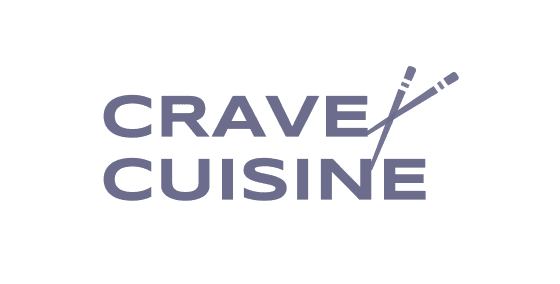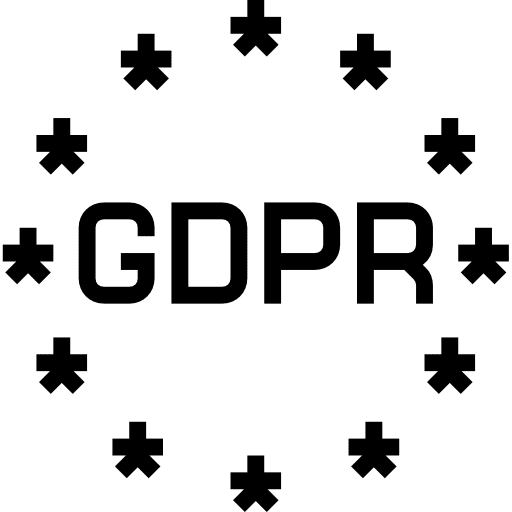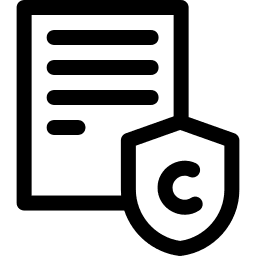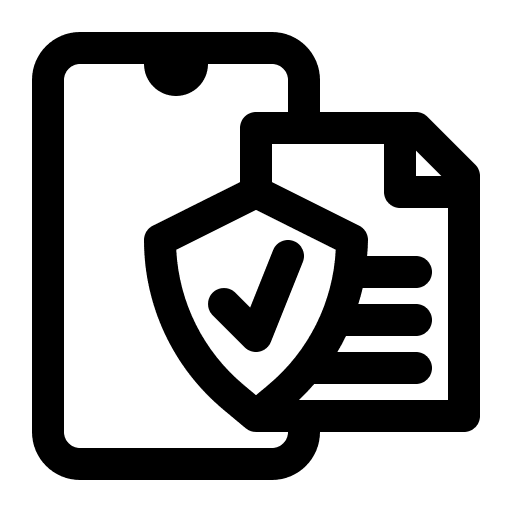Free Privacy Policy Generator

Step 2: Website/App Information to generate privacy policy
Step 3: Data Collection Information
Step 4: Contact Information Want To Put In Privacy Policy
Step 5: Tracking and Analytics
Optional
Instead of a Free Privacy Policy Generator, choose our Professional Privacy Policy Generator 100% Free to include additional, premium-only provisions to be compliant with the law.
The Professional Privacy Policy Generator includes the necessary provisions for:
CalOPPA
California Online Privacy Protection Act
GDPR
EU General Data Protection Regulation
CCPA (CPRA)
California Consumer Privacy Act
And many more
Privacy laws around the world
The Professional Privacy Policy includes the text required by these third-parties:
- Analytics (example: Google Analytics and others)
- Email Marketing (example: MailChimp and others)
- Ads (example: Google Ads and others)
- Payments (example: PayPal and others)
- And more!
Pricing
The Free Privacy Policy is 100% free.
GDPR is mandatory since May 25, 2018
GDPR applies to websites, apps & businesses from the EU or to businesses with users from the EU.
COPPA compliance is required if you collect information from children under 13.
COPPA applies to websites, apps & businesses in the US or with users from the US.
Step 6: Download Generated Privacy Policy
Step 6: Download Generated Privacy Policy
Built for Every Business
Ecommerce site
SaaS
Website
Mobile App
Easy to Use
Embed options
Automatic Updates
Customization Tools
Intuitive builder
Compiles with Privacy Laws
PIPEDA
UK GDPR
Call OPPA
GDPR
Why Choose Us
Generate a free privacy policy that’s comprehensive and legally compliant using one of the best privacy policy generators of 2023.

How it works
Just follow these simple steps to get a custom, compliant privacy policy
for your business, software, site, or app:
Content
Tell us a little about your business
Create your legal policy in a matter of minutes by answering a few questions in our privacy policy builder.
Publish your new privacy policy
When you’re ready to place your privacy policy on your website, we’ll give you a few options. Whether you use a content management system like WordPress, manage your website yourself, or use a professional service, we make it easy.
Add your policy to your website
Finally, when it comes to staying compliant, we have you covered. Our legal team regularly reviews and updates the privacy policy generator as laws change. When new laws are passed — like some recent US state laws — we’ll also review and update as needed. You’ll be in the loop to make sure your policy stays compliant.

Testimonials
It is so easy to use. I don't need to understand the full legal details of everything. It takes you step by step through the whole process.

Termly is an amazing service and easy to use and update as business grows. it takes you easy step to process further.

I was impressed by how Termly made it easy to create a privacy policy that covered multiple privacy laws into one coherent.







Who can Benefit ?
Privacy Policy for Websites / Blogs
Most websites and blogs need privacy policies without even realizing it. Stay on the right side of the law by making a custom privacy policy for your site. You can use our products with various platforms like WordPress, Godaddy, Weebly, and more.
Websites and Blogs often process visitor’s personal data, including:
Newsletter sign-ups
Contact us forms
Customer service communications
Cookies or other tracking technologies used for analytics, performance, and more
Privacy Policy for E-commerce Stores
Ecommerce businesses often use consumer’s personal data, including:
Payment Information
Customer names
Contact details
Customer names
Customer address
Privacy Policy for Mobile Apps
Privacy Policy for Mobile Apps
Even if you are not subject to laws like the GDPR and CCPA, some marketplaces — including Google Play and Apple’s App Store — require your app to have a privacy policy. Avoid getting your app suspended or removed by reviewing app stores’ guidelines and publishing a privacy policy.
Some third-party services and tools, like Google Analytics and Google Maps, require that you have a privacy policy in order to use the service. Create the perfect app privacy policy in minutes with our free privacy policy generator.
Privacy Policy for Third-Party Tools
Even if you don’t think you need a privacy policy, some third-party services, like AdSense and Facebook Marketplace, require you to submit a compliant privacy policy. Our free privacy policy generator can help you create a personalized policy to comply with your third-party tool requirements.
Privacy Policy for SaaS Apps
Your subscription-based service needs a privacy policy to account for the collection of subscriber details. Email addresses, payment information, and more are considered personal data under privacy laws. Keep your SaaS app in the clear with a free privacy policy.
Privacy Policy for Facebook Ads and Pages
Facebook requires apps on its platform to publish a privacy policy. You’ll need to have a privacy policy link ready before your app can go live. Facebook’s Platform Terms lists the requirements you’ll need to meet. Your privacy policy will also need to comply with any relevant laws.
Who can Benefit ?
Based on international laws and modern business practices, you need a privacy policy if you collect any personal information or personal data from users. Personal data includes more than just names and addresses — it can include cookie data, IP addresses, email addresses, and more.
Personal Data
Personal data is any information that can be used to identify an individual. Personal data includes names, emails, phone numbers, addresses, geolocation, IP address, cookie data, and so much more.
Personal Data & the Law
Personal data is heavily protected by laws like the GDPR, CCPA, PIPEDA, CalOPPA, and others. The leading method of protecting personal data is requiring websites and businesses to be honest about how they collect, share, and use personal data. Privacy law violations can result in serious fines.

Personal Data & Your Privacy Policy
If you collect personal data, you need a privacy policy. Comply with laws, build loyalty with customers, and meet online business standards by providing a comprehensive privacy policy to your users. Our privacy policy generator walks you through the necessary questions to create a customized privacy policy.


GDPR
EU General Data Protection Regulation

CCPA
California Consumer Privacy
Act

CalOPPA
California Online Privacy Protection Act

PIPEDA
Canada Personal Information Protection and Electronic Documents Act
FAQs
Based on international laws and modern business practices, you need a privacy policy if you collect any personal information or personal data from users. Personal data includes more than just names and addresses — it can include cookie data, IP addresses, email addresses, and more.
Yes, Termly offers one legal policy for free. No credit card is required to create, publish, and post your privacy policy once it’s been generated. However, if you need more than one legal policy or additional compliance features, you can choose to upgrade to a paid plan and gain full access to our entire suite of compliance tools.
We update our privacy policy generator on a regular basis to improve performance and comply with the latest data privacy laws.
Here are the latest updates to our privacy policy generator:
May 16, 2024
- Updated Section: US State Laws
- Purpose: Legal
- Summary: Customers can be compliant with 11 new US state privacy laws.
- Impact: The “DO UNITED STATES RESIDENTS HAVE SPECIFIC PRIVACY RIGHTS” section will specify the US state residents your policy applies to. This section has also been updated to consolidate all previous, individual state subsections to general language for all states.
- Updated Section: Sensitive Personal Information Under State Laws
- Purpose: Legal
- Summary: Updated the list of sensitive information. This page also includes the option to specify if your business uses sensitive information for inferring characteristics.
- Impact: If you do not use sensitive information for inferring characteristics, your policy will specify that under the “DO UNITED STATES RESIDENTS HAVE SPECIFIC PRIVACY RIGHTS” section.
- Updated Section: Financial Incentives
- Purpose: Legal
- Summary: Financial incentives can also apply to the Colorado Privacy Act (CPA).
- Impact: If your business provides financial incentives to Colorado residents, your policy will include the necessary language about financial incentive programs under the “DO UNITED STATES RESIDENTS HAVE SPECIFIC PRIVACY RIGHTS” section.
- Updated Section: Inquiries
- Purpose: Legal
- Summary: Contact information for data privacy questions applies to all US state laws.
- Impact: Any contact information you provide specifically for US state residents will appear under the “DO UNITED STATES RESIDENTS HAVE SPECIFIC PRIVACY RIGHTS” section.
March 28, 2024
- New Section: Marketing and Promotional Communications
- Purpose: Legal
- Summary: Customers can include details about sending SMS text messages to satisfy regulatory requirements of the Telephone Consumer Protection Act (TCPA).
- Impact: A new “SMS TEXT MESSAGING” section will include information on SMS message frequency, how to opt out, message and data rates, and support details.
View all updates in our Privacy Policy Generator Update Log
A privacy policy is a legal document that explains how a company or website collects, uses, and shares personal information. Privacy policies should outline what personal information is collected, how the information is used, whether the information is shared with third parties, what rights users have over their data, and more.
If you collect personal data, you need a privacy policy. There are multiple laws that require privacy policies, as well as service providers that demand their users have privacy policies. For example, many Google services require you to have a privacy policy.
Additionally, today’s consumers are more aware than ever when it comes to data privacy. Stand out from your competitors by publishing a clear, detailed privacy policy. You can reassure your users that their personal information is safe with your website, app, or company.
When creating your privacy policy, you should consider several privacy laws — including, but not limited to, the GDPR, CCPA, CalOPPA, and PIPEDA. Depending on your type of business, you may also need to review any relevant industry-specific laws or laws about use of specific types of data.
If you’re not familiar with these data privacy laws or how they might apply to you, don’t worry. Our privacy policy generator can help walk you through relevant questions.
No, you can’t copy someone else’s privacy policy. Doing so will put your business or website at legal risk. Privacy policies are protected by copyright, so copying someone else’s policy is a legal violation. More importantly, your privacy policy needs to be tailored to your website in order to comply with data privacy laws and give users accurate information.
In addition, you cannot copy and paste a privacy policy. Using another company’s privacy policy without permission is (copyright infringement), and illegal. Your privacy policy needs to be specific to your business, and explain how your website or app collects (user) data.
You’ll need to keep the following questions in mind when creating your policy:
- What types of data do you collect? Email addresses, contact information, and payment information are commonly collected. Be sure to evaluate all of the data you collect, whether that is for marketing purposes, newsletters, order information, and more.
- Why do you collect the data? Are you collecting any data you don’t need? Describing the purpose for data collection is a critical part of your privacy policy.
- Where and how do you store collected data? Some data privacy laws limit how long you can keep personal information. You’ll also want to consider the security of your data storage.
Our privacy policy generator walks you through the steps and ensures you don’t forget anything when creating a privacy policy.
Put your privacy policy in easy-to-find areas on your website. Some common places to put a privacy policy include:
- Website footer
- Main menu
- Checkout page
- Sign-up page
- Within other legal policies
You should put your policy in multiple of the above locations. Linking your privacy policy around your site ensures users can find it, and that you stay compliant with privacy laws. Our privacy policy generator offers multiple embed options to help you easily add a policy to your website.
Some websites and businesses do need more than just a privacy policy. If you need to comply with laws like the GDPR, you may also need to look into cookie consent. Depending on the type of website or business you have, you may also need other legal agreements. For example, websites that sell products may need a return policy and a shipping policy.
Some legal agreements, like Terms and Conditions, can help protect your business. Terms and Conditions, also known as Terms of Service or Terms of Use, are an agreement between the website and the users. You can use this agreement to specify the rules for using your website or describe user behavior that is not allowed.
